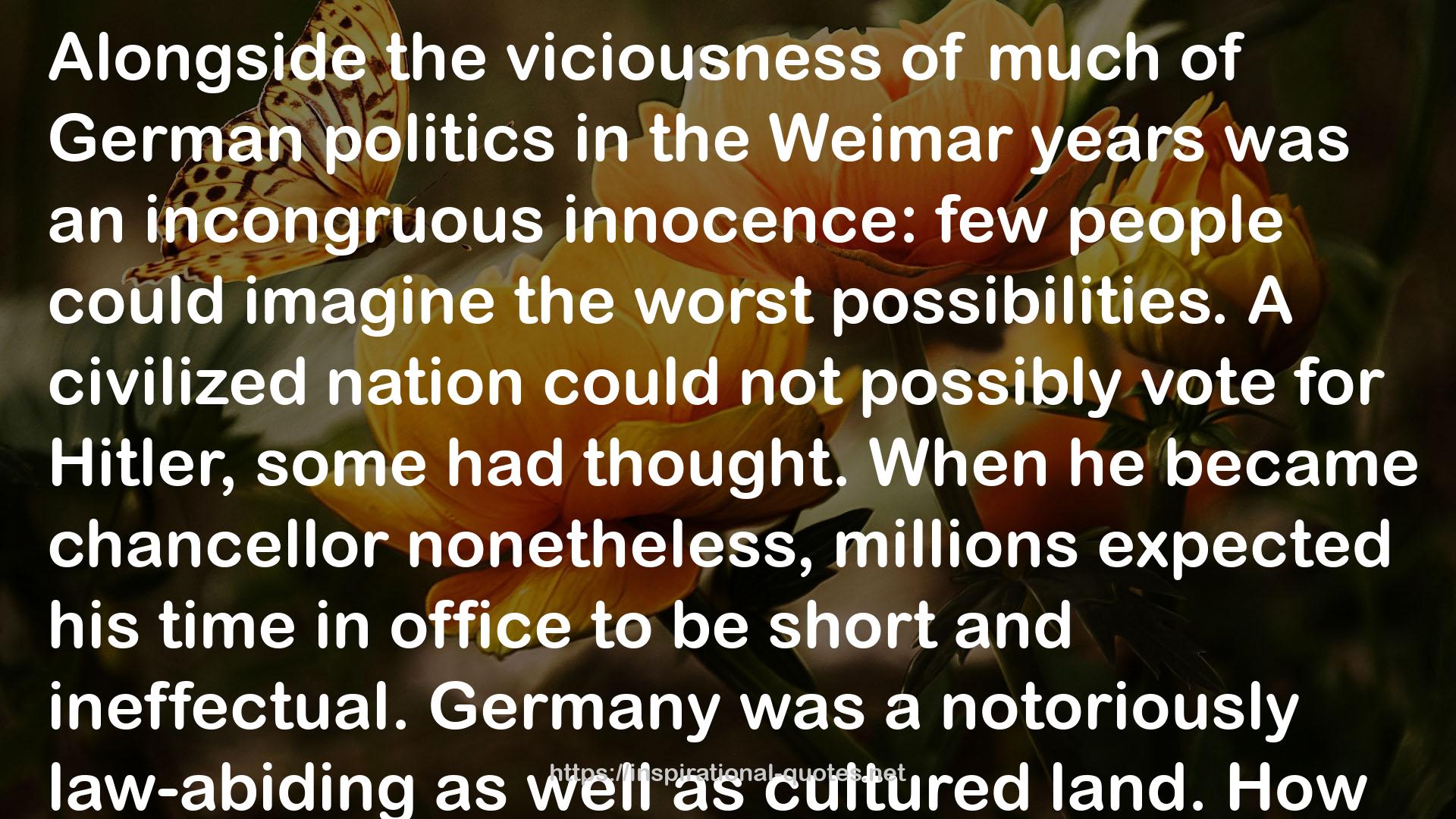" Alongside the viciousness of much of German politics in the Weimar years was an incongruous innocence: few people could imagine the worst possibilities. A civilized nation could not possibly vote for Hitler, some had thought. When he became chancellor nonetheless, millions expected his time in office to be short and ineffectual. Germany was a notoriously law-abiding as well as cultured land. How could a German government systematically brutalize its own people? German Jews were highly assimilated and patriotic. Many refused to leave their homeland, even as things got worse and worse. "I am German and am waiting for the Germans to come back; they have gone to ground somewhere," Victor Klemperer wrote in his diary--he was the son of a rabbi and a veteran of the First World War who chose to stay, and miraculously survived.
Few Germans in 1933 could imagine Treblinka or Auschwitz, the mass shootings of Babi Yar or the death marches of the last months of the Second World War. It is hard to blame them for not foreseeing the unthinkable. Yet their innocence failed them, and they were catastrophically wrong about their future. We who come later have one advantage over them: we have their example before us. "
Image for Quotes

Few Germans in 1933 could imagine Treblinka or Auschwitz, the mass shootings of Babi Yar or the death marches of the last months of the Second World War. It is hard to blame them for not foreseeing the unthinkable. Yet their innocence failed them, and they were catastrophically wrong about their future. We who come later have one advantage over them: we have their example before us." style="width:100%;margin:20px 0;"/>